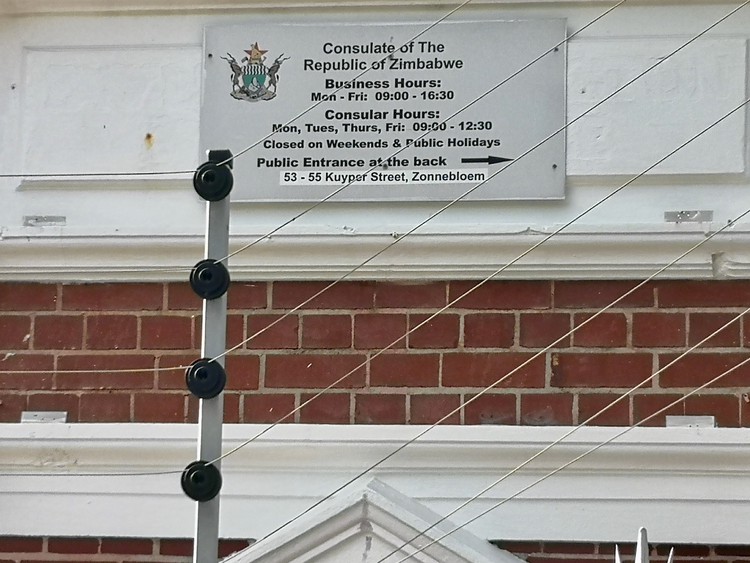 About 3,300 Zimbabweans in South Africa have registered for a once-off food voucher. Photo: Tariro Washinyira
About 3,300 Zimbabweans in South Africa have registered for a once-off food voucher. Photo: Tariro Washinyira
24 July 2020
 About 3,300 Zimbabweans in South Africa have registered for a once-off food voucher. Photo: Tariro Washinyira
About 3,300 Zimbabweans in South Africa have registered for a once-off food voucher. Photo: Tariro Washinyira
Zimbabweans who missed the submission deadline on 19 July to apply for food assistance cannot get an extension, Zimbabwean Consul General Melody Chaurura to Johannesburg told GroundUp on Wednesday.
“There is no room for extension at this point because submitted details are already being processed,” said Chaurura.
The embassy had put out a call for Zimbabweans in South Africa in need of food assistance because of the impact of the Covid-19 pandemic to apply for help by 19 July. The assistance would come in the form of a once off voucher from the International Organisation for Migration, which had asked the embassy to submit a list of Zimbabweans for inclusion.
Chaurura said about 3,300 Zimbabweans had successfully registered for food assistance.
Priority would be given to expecting mothers, unemployed youth and women headed households.
In May, Zimbabwe Ambassador David Hamadziripi told GroundUp that the Zimbabwean Embassy had received over 4,000 requests for food assistance. The embassy had sent lists of struggling Zimbabweans to NGO partners and agencies of the United Nations.
Many immigrants earn an income through informal trading and menial jobs, which have evaporated during the pandemic, and initially no assistance was forthcoming for them from the South African government.
Then Pretoria High Court Judge Selby Baqwa ruled on 19 June that the R350 Special Covid-19 Social Relief of Distress grant be extended to asylum seekers and special permit holders from Lesotho, Angola and Zimbabwe.
Spokesperson for SASSA Kgomoco Diseko, in an email on 23 July, said that the department is aware of the court order. SASSA has been working to adjust its system to be able to accommodate asylum seekers and special permit holders. He said the application process will still be electronic but requires a completely separate portal, as asylum seeker visas and special permit numbers are constructed differently to the ID documents used for the applications by citizens and permanent residents.
Diseko said: “The new portal should be ready for testing within the next few days and will thereafter be opened for applications. As a result of the development work, no applications have yet been received. SASSA has, however, been engaging with organisations working with asylum seekers to keep them updated with progress.”
“It must be kept in mind that the court ruling made provision for very specific categories of people to apply – asylum seekers and holders of special permits from Zimbabwe, Angola and Lesotho only, not all immigrants to this country.”
Chaurura further said consultations are currently underway for the assisted repatriation programme. “About 182 Zimbabweans who were stuck in South Africa were assisted with free transport home between June and July. About 1,862 who were stuck in both South Africa and Lesotho self repatriated themselves. The number of the citizens who were self repatriated using their vehicles is not recorded.”